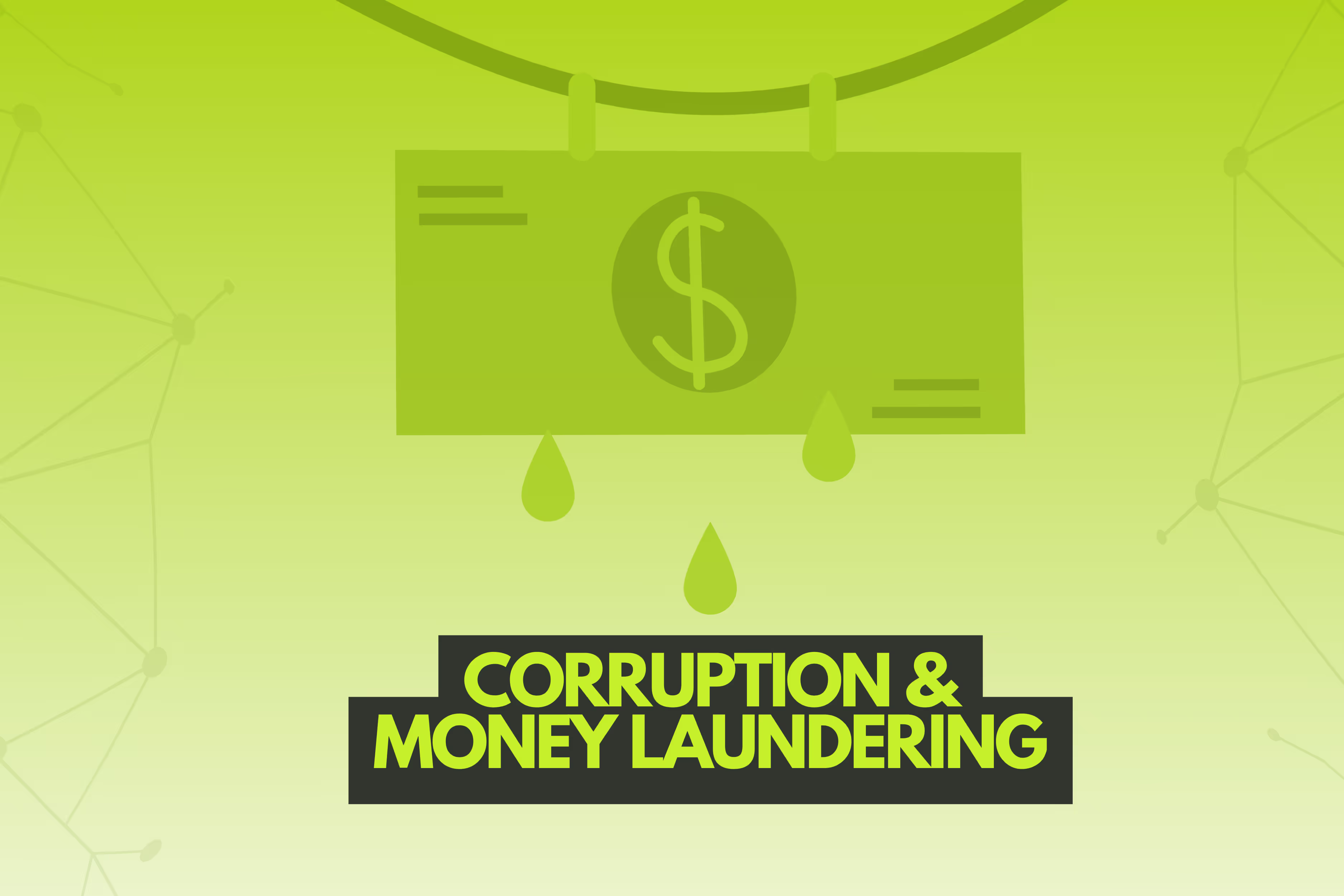
The Connection Between Corruption and Money Laundering
Transparency International just published annual its Corruption Perceptions Index. It's a time of year when this ubiquitous crime is in sharp focus. As an anti-money laundering screening service, this got the sanctions.io team thinking. What is the connection between corruption and money laundering? And what are some notorious corruption cases with billions laundered?
On Tuesday, February 11, Transparency International released its highly anticipated 2024 Corruption Perceptions Index (CPI). You can read the full report and download it here.
Countries like Austria, Brazil, France, Germany, Mexico, and the United States received their lowest scores yet on the CPI, with 100 being a perfect score. Brazil, in particular, received an all-time low score of 34 and was specifically mentioned in the press release. This year’s CPI highlights the billions of dollars in climate funds at risk of theft or mismanagement—risks that, as all AML professionals know, can lead to money laundering.
AML teams use the annual CPI results to assess money laundering risks by evaluating jurisdictional risk, tailoring due diligence, and refining compliance priorities.
But what's the connection between corruption and money laundering? And what are some notorious corruption cases involving billions of dollars laundered? Let’s dive in.
{{snippets-guide}}
Why Corruption and Money Laundering Walk Hand-in-Hand
Like salt and pepper (the list could go on), corruption and money laundering naturally come together.
Why? Because most criminals with illicit proceeds from illegal activities seek ways to legitimize and integrate these funds into the economy, making them appear legal and untraceable.
Funds obtained through corruption include crimes such as bribery and embezzlement spanning both the public and private domains.
And the fact is this: Corrupt individuals in positions of responsibility and power will more often than not have money laundering charges in their indictments once the law catches up with them.
How Is Corruption and Dirty Money Being Tackled?
Before diving into the infamous corruption cases with millions of dollars laundered, let's briefly outline how the international community is tackling the problem.
According to Transparency International, a global movement working in over 100 countries to end the injustice of corruption, there are broadly three areas:
- Making it hard for criminals to hide (e.g. Beneficial ownership transparency)
- AML regulation in banks and other financial services
- Strict laws and regulations (e.g. Sanctions)
How Do Corrupt Individuals Find Money Laundering Roadblocks?
One of the ways corrupt individuals meet resistance to their nefarious money laundering plans is through AML regulation and sanctions laws. For example, politically exposed persons (PEP) checks may be performed on customers and business partners.
PEPs, such as politicians and high-ranking civil servants, may have under their control something a regular person doesn't - state funds (collected through taxes) - and are high-risk money launderers.
In this article, we won't go further into this topic. But if you would like to learn more, the following sanctions.io articles will be helpful:
- What Are Politically Exposed Person (PEP) Checks? A Beginner's Guide (click here)
- The Ultimate Sanctions Screening Guide: Everything You Need to Know (click here)
And ultimately, it boils down to this: Laws and regulations play a crucial role in establishing formidable barriers against corrupt individuals and their money laundering operations.
But what notorious cases in recent years, splashed over the newspapers and breaking news feeds, have helped shape regulation (and public opinion) by exposing the loopholes and vulnerabilities?
We'll now reveal two significant cases.
Operation Car Wash (Brazil)
Operation Car Wash was a large-scale investigation and anti-corruption operation in Brazil that began in March 2014. The name, although stereotypical, was apt. Why?
A routine inquiry into a car wash in Brazil's capital, Brasilia, snowballed into one of the most infamous corruption and money laundering cases in history.
The operation was primarily focused on uncovering and prosecuting corruption involving the state-controlled oil company Petrobras, but it rapidly escalated to other government and business entities.
Unearthed was a web of corruption, money laundering, bribes, and kickbacks involving top executives of Petrobras, prominent politicians from various political parties, and some of the country's most significant construction and engineering firms.
Operation Car Wash involved billions of dollars in bribes, with over 200 people charged with crimes such as money laundering.
This is a complex case, and it still appears in the news today. To learn more, the Wilson Center's Lessons of Operation Carwash is a 100-plus page report that comprehensively analyzes the operation's impact on Brazilian politics and the broader implications for anti-corruption efforts.
1Malaysia Development Berhad (1MDB) Scandal
Let's jump straight into our next notorious case of corruption and money laundering: the 1Malaysia Development Berhad scandal, often referred to as the 1MDB, is a story of Malaysia's missing billions.
1MDB was a sovereign state fund (these funds are usually created to benefit a country's economy and people).
But in 2015, news broke that billions of dollars were stolen from the 1MDB Malaysian state fund and laundered, for example, through shell companies and offshore bank accounts.
According to the US Department of Justice (DOJ), $4.5 billion was stolen from 1MDB to finance luxury spending by government officials and their associates. The former Prime Minister of Malaysia, Najib Razak, is serving a 12-prison sentence.
This is a complex case. You can view a timeline of events here.
Recommended reading: What Is a Shell Company in Money Laundering? A Key Tool for Criminals
{{snippets-case}}
Final Thoughts & How sanctions.io Can Help
Corruption and money laundering are intricately connected. In this report, we learned how, why, and provided high-profile examples.
To better understand the intricate connection between corruption and money laundering, we recommend exploring our article: The Pandora Papers and the Effect on AML Compliance Teams in the Future.
sanctions.io is a highly reliable and cost-effective solution for AML and sanctions screening. AI-powered and with an enterprise-grade API with 99.99% uptime are reasons why customers globally trust us with their trade compliance and AML screening needs. To learn more about how our sanctions, PEP, and criminal watchlist screening service can support your organization's compliance program:
We also encourage you to take advantage of our free 7-day trial (no credit card is required).



